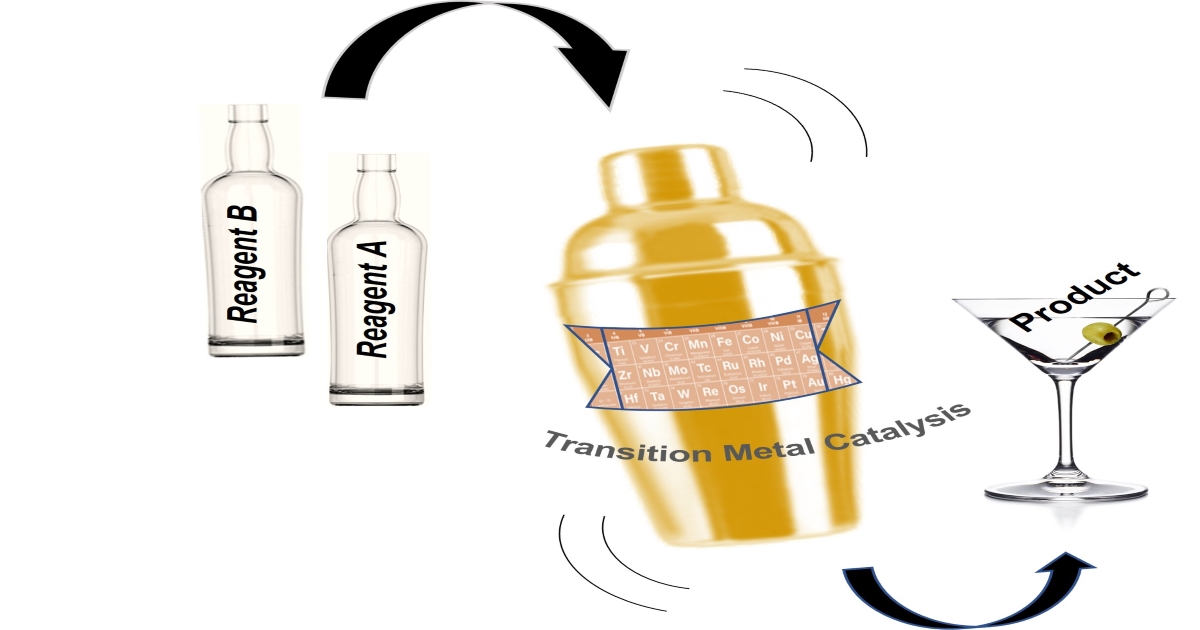Advances in Transition Metal Catalysis, 2nd Edition
A special issue of Catalysts (ISSN 2073-4344). This special issue belongs to the section "Catalytic Materials".
Deadline for manuscript submissions: closed (20 September 2025) | Viewed by 2856

Special Issue Editors
Interests: antioxidants; bioactive compounds; circular economy; sustainable processes; valorization of industrial byproducts; organic chemistry; NMR
Special Issues, Collections and Topics in MDPI journals
Interests: organic synthesis; catalysis; natural products; medicinal chemistry
Special Issues, Collections and Topics in MDPI journals
Special Issue Information
Dear Colleagues,
This Special Issue is a continuation of the previous Special Issue, “Advances in Transition Metal Catalysis”, following its great success.
Transition metal catalysis has been established as one of the most useful and effective tools for the preparation of synthetically valuable targets of interest in various research fields. Indeed, many key bond-forming processes have been enabled by the capacity of transition-metal-catalyzed reactions in controlling crucial parameters such as selectivity, reactivity, and stability.
Today, due to increasing interest in sustainable, green, clean, and more efficient organic synthesis, a great deal of attention has been devoted to the economic and environmental impact of such reactions, leading to the development of dynamic research to maximize the chemical usefulness and efficiency of catalyst-driven reactions while minimizing waste.
Significant advances in the field of transition metal catalysis have occurred, and scientific activities in this area still offer much scope for innovation.
This Special Issue will focus on the remarkable goals achieved in this exciting research area and will cover recent progress and trends in organometallic chemistry.
From this perspective, we plan to provide an overview of the state of the art in transition metal catalysis and of the many challenges that remain for the future.
Prof. Dr. Antonia Iazzetti
Prof. Dr. Andrea Calcaterra
Guest Editors
Manuscript Submission Information
Manuscripts should be submitted online at www.mdpi.com by registering and logging in to this website. Once you are registered, click here to go to the submission form. Manuscripts can be submitted until the deadline. All submissions that pass pre-check are peer-reviewed. Accepted papers will be published continuously in the journal (as soon as accepted) and will be listed together on the special issue website. Research articles, review articles as well as short communications are invited. For planned papers, a title and short abstract (about 100 words) can be sent to the Editorial Office for announcement on this website.
Submitted manuscripts should not have been published previously, nor be under consideration for publication elsewhere (except conference proceedings papers). All manuscripts are thoroughly refereed through a single-blind peer-review process. A guide for authors and other relevant information for submission of manuscripts is available on the Instructions for Authors page. Catalysts is an international peer-reviewed open access monthly journal published by MDPI.
Please visit the Instructions for Authors page before submitting a manuscript. The Article Processing Charge (APC) for publication in this open access journal is 2200 CHF (Swiss Francs). Submitted papers should be well formatted and use good English. Authors may use MDPI's English editing service prior to publication or during author revisions.
Keywords
- homogeneous catalysis
- heterogeneous catalysis
- copper
- palladium
- gold
- green chemistry
- transition metal nanoparticles
- organometallic chemistry
- metal-mediated synthesis
- catalytic approaches for heterocycles
- transition metal catalysts
Benefits of Publishing in a Special Issue
- Ease of navigation: Grouping papers by topic helps scholars navigate broad scope journals more efficiently.
- Greater discoverability: Special Issues support the reach and impact of scientific research. Articles in Special Issues are more discoverable and cited more frequently.
- Expansion of research network: Special Issues facilitate connections among authors, fostering scientific collaborations.
- External promotion: Articles in Special Issues are often promoted through the journal's social media, increasing their visibility.
- Reprint: MDPI Books provides the opportunity to republish successful Special Issues in book format, both online and in print.
Further information on MDPI's Special Issue policies can be found here.
Related Special Issue
- Advances in Transition Metal Catalysis in Catalysts (12 articles)






